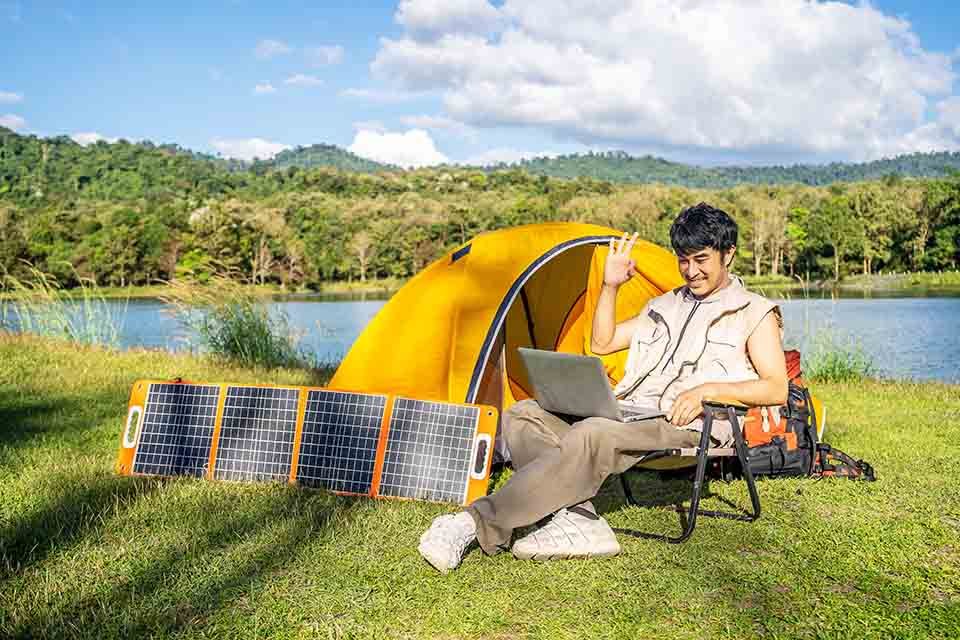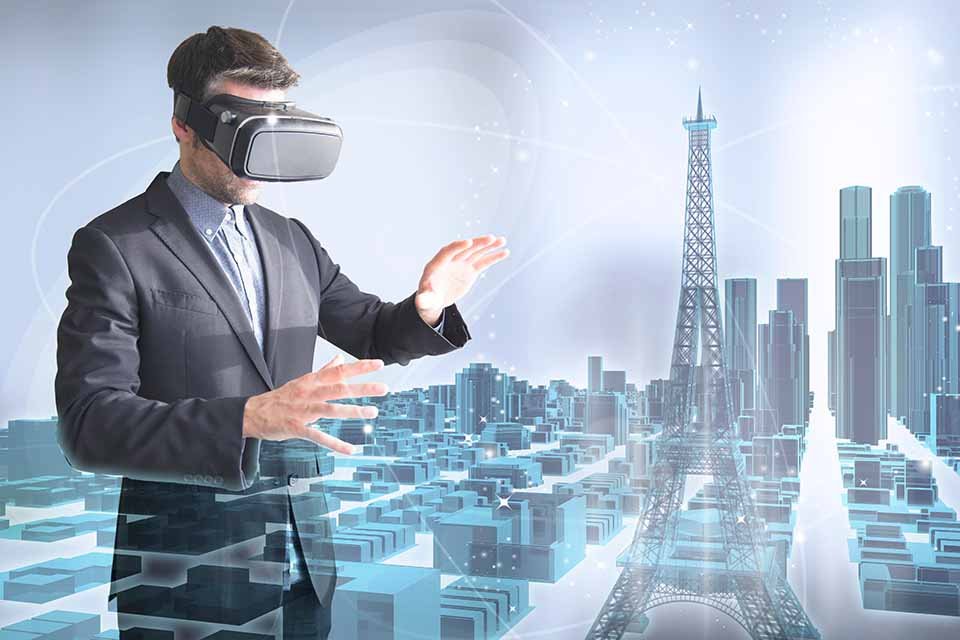Introduction
Travel is often viewed through the lens of leisure and relaxation, yet its significance extends far beyond these realms. Transformative by nature, travel serves as a powerful educational tool that enriches our lives in multifaceted ways. By venturing beyond our familiar environments, we immerse ourselves in a diverse array of experiences that stimulate learning and foster a deeper understanding of the world around us.
Whether traversing the bustling streets of a foreign city or exploring the serene landscapes of a distant country, travel brings us face-to-face with new cultures, languages, and lifestyles. These encounters challenge our preconceptions, broaden our perspectives, and cultivate a sense of empathy and global awareness. Furthermore, travel provides an unparalleled opportunity for experiential learning, allowing us to gain practical knowledge that cannot be replicated within the confines of a classroom or through virtual means.
In addition to cultural enrichment, travel ignites curiosity and promotes intellectual growth. It encourages us to ask questions, seek answers, and engage in meaningful conversations about history, geography, and societal norms. By stepping out of our comfort zones, we become more adaptable and open-minded individuals, better equipped to navigate the complexities of our increasingly interconnected world.
Through the immersive experience of travel, we not only witness the diversity and beauty of our planet but also discover new dimensions of ourselves. This profound form of education enhances our critical thinking skills, fosters resilience, and inspires creativity. Ultimately, travel is an investment in personal development that yields lifelong benefits, shaping us into well-rounded, informed, and compassionate citizens of the global community.
Experiencing Different Cultures
Travel offers a unique opportunity to immerse oneself in different cultures, providing a profound educational experience that extends beyond the usual academic boundaries. By engaging with local customs, traditions, and ways of life, travelers gain a deeper understanding and appreciation of global diversity. This immersion facilitates the development of cultural sensitivity and empathy, fostering a world that values inclusivity and mutual respect.
One of the most effective ways to embrace cultural immersion is by participating in local festivals. These events often encapsulate the essence of a region’s cultural heritage, showcasing traditional music, dance, food, and rituals. Travelers attending these festivals can witness firsthand the vibrancy and richness of a community’s cultural identity. Additionally, such participation offers meaningful interactions with locals, providing a more personal and impactful travel experience.
Dining with locals is another excellent method of cultural immersion. Food is a universal language that bridges gaps and creates connections. By sharing meals with residents and learning about their culinary traditions, travelers not only enjoy new tastes but also gain insights into the local lifestyle and values. These shared experiences help build rapport and understanding between different cultural backgrounds.
Staying in culturally immersive accommodations can further enhance the travel experience. Options such as homestays, agritourism lodgings, or boutique hotels designed to reflect local architecture and decor allow travelers to live as the locals do. These accommodations often provide opportunities to engage in daily activities and customs of the area, offering a more authentic and enriching adventure.
Engaging directly with the fabric of a new culture encourages personal growth, opens minds, and broadens perspectives. The significance of experiencing different cultures during travel cannot be overstated, as it equips individuals with a more comprehensive worldview, enabling them to become informed, compassionate global citizens.
Learning New Languages
Traveling offers an unparalleled opportunity to immerse oneself in a new language, an invaluable experience that far exceeds the limitations of classroom learning. By surrounding yourself with native speakers, you can improve your language skills more rapidly and effectively. The authentic context of travel allows for practical application and immediate feedback, fostering better retention and understanding.
One significant benefit of learning new languages through travel is the immersive environment. Constant exposure to a foreign language in everyday situations, such as ordering food, asking for directions, or engaging in casual conversations, can accelerate language acquisition. Living day-to-day in a foreign language environment naturally boosts listening and speaking abilities, making the language more intuitive over time.
Language learning while traveling can be further enhanced through several practical tips. Utilizing language apps, such as Duolingo or Babbel, can supplement your learning on-the-go, providing structured lessons and vocabulary practice tailored to your level. These apps often include speech recognition to aid pronunciation, making it easier to converse more confidently with locals.
Enrolling in local language classes can also provide a structured learning environment and help build a foundational understanding. These classes often offer the added benefit of cultural context, making it easier to grasp nuances and idiomatic expressions that are difficult to learn from textbooks alone. Many travel destinations offer short-term courses, which are perfect for travelers seeking to improve their language skills without a long-term commitment.
Finally, the most effective method might be engaging in conversations with native speakers. Practicing with locals not only aids in learning colloquial language but also helps in understanding cultural subtleties. Most people appreciate when travelers make an effort to speak their language, often leading to more meaningful and enriching interactions. Joining community activities, such as language exchange meetups, can provide a friendly setting for such practice.
Incorporating these strategies during your travels will significantly enhance your language learning experience, making it both enjoyable and efficient. Embracing the linguistic diversity of the world can broaden your horizons and provide deeper connections with the places you explore.
Gaining Historical Knowledge
Traveling offers an unparalleled opportunity to delve into the annals of history, transforming abstract textbook narratives into vivid, tangible experiences. Visits to historically significant sites, such as ancient ruins, battlefields, and monuments, provide invaluable educational insights, enabling travelers to immerse themselves in the legacies of former times. These encounters can deepen one’s understanding of past events and their enduring influence on contemporary society, thereby broadening both intellectual and cultural horizons.
Ancient ruins, for instance, bear silent witness to the architectural, artistic, and social advancements of long-gone civilizations. Exploring these remnants can reveal intricate details about the daily lives, beliefs, and innovations of ancient peoples, thus fostering a profound appreciation of human ingenuity and resilience. Similarly, visiting battlefields offers a poignant reminder of the sacrifices and strategic decisions that have shaped world history, providing a nuanced perspective on the causes and consequences of conflicts.
Monuments, with their timeless grandeur, serve as enduring tributes to significant historical figures and pivotal events. By standing before these imposing structures, travelers can contemplate the ideals and narratives that underpin our cultural heritage. To enhance this historical learning experience, travelers are encouraged to participate in guided tours led by knowledgeable experts. These tours often provide context-rich stories and lesser-known anecdotes that enrich the visitor’s understanding of the historical site’s significance.
Museum visits can further complement this historical journey, offering curated collections of artifacts and exhibits that connect the dots between past and present. Engaging with local historians also presents a unique opportunity to gain firsthand insights and interpretations grounded in regional knowledge and expertise. Through these multifaceted approaches, travel becomes a robust educational tool that not only informs but also inspires a deeper appreciation of our shared human history.
Discovering Art and Architecture
Experiencing art and architecture firsthand offers profound educational advantages that go beyond what textbooks and virtual tours can convey. When travelers immerse themselves in the world of art and architecture by visiting museums, galleries, and historic buildings, they gain a deeper appreciation for the diversity of styles and techniques that shape cultural landscapes. These encounters provide insights into the historical contexts and personal expressions behind artistic and architectural creations, fostering a nuanced understanding of cultural heritage.
Iconic sites such as the Louvre in Paris, the Sistine Chapel in Vatican City, and the Guggenheim Museum in New York City exemplify the richness of artistic heritage. Meanwhile, landmarks such as the Eiffel Tower, the Colosseum, and the modern marvels like the Sydney Opera House showcase architectural ingenuity and evolution. Each site offers unique opportunities for learning, from observing the brushstrokes of Renaissance masterpieces to deciphering the structural principles of Gothic cathedrals.
To delve deeper into these subjects, travelers can engage in various immersive experiences. Attending art workshops, for instance, allows individuals to learn about different artistic techniques directly from skilled practitioners. These workshops often cover a range of mediums, including painting, sculpting, and digital art, enabling participants to explore and develop their creative skills while gaining insights into cultural contexts.
Furthermore, architectural tours guided by experts can illuminate the complexities and innovations of architectural designs. These tours often include visits to both historical and contemporary buildings, offering comprehensive perspectives on architectural trends and practices. Participants can learn about the sociopolitical influences on architectural developments and appreciate the engineering feats that shape our built environment.
Travelers can also benefit from curated experiences that combine both art and architecture. For example, guided cultural tours in cities renowned for their artistic and architectural heritage, such as Florence or Barcelona, provide structured itineraries that enrich travelers’ understanding of the interplay between these disciplines. These educational journeys cultivate a lifelong appreciation for art and architecture, broadening horizons and expanding minds through the compelling experiences they curate.
Traveling provides an unparalleled opportunity to encounter new ideas and perspectives. When individuals step outside their familiar environments and immerse themselves in different cultures, they are exposed to a broader spectrum of human experience. Meeting people from diverse backgrounds and experiencing varied lifestyles can offer a profound education unmatched by traditional learning environments.
One of the key benefits of travel is the chance to engage with a heterogeneous mix of people. Conversations with locals, other travelers, and expatriates can reveal insights into different ways of thinking and living, helping to challenge preconceived notions. This interaction fosters a deeper understanding as we learn to appreciate the values and beliefs that shape other societies. Such experiences underscore the commonalities that bind us, while also celebrating the rich tapestry of human diversity.
To maximize the educational potential of these encounters, it is crucial to actively seek meaningful interactions. Engaging in conversations about local customs, history, and personal viewpoints can yield valuable lessons and foster mutual respect. Participating in cultural exchanges, such as homestays, cooking classes, or community projects, allows for immersive learning experiences that go beyond surface-level tourism. Staying open-minded and inquisitive is essential, as it encourages a willingness to learn and adapt one’s perspectives based on new information.
By embracing the educational value of travel, individuals can broaden their horizons in ways that textbooks or digital media cannot. This exposure to diverse perspectives not only enhances personal growth but also equips individuals with the empathy and critical thinking skills necessary to navigate an increasingly interconnected world. Ultimately, the lessons learned through travel can inspire a more inclusive and understanding global community.
Developing Independence and Self-Confidence
Travel, by its very nature, presents countless opportunities for developing independence and self-confidence. When individuals navigate unfamiliar locations, manage logistics, and solve problems on the go, they inevitably enhance essential life skills. One cannot overstate the empowering feeling of successfully understanding foreign public transportation systems, deciphering unfamiliar languages, or even negotiating with local vendors. These experiences cultivate a newfound sense of self-reliance and resilience that extends well beyond the trip itself.
An illustrative example of this empowering journey can be seen through the story of Sarah, a young professional who ventured solo to Southeast Asia. Initially apprehensive, Sarah had to quickly adapt to the local culture, learn phrases in multiple languages, and find her way around bustling cities without relying on familiar resources. This challenge forced her to step out of her comfort zone and develop a robust sense of self-direction. By the end of her trip, Sarah not only became proficient in navigating geographically but also saw substantial growth in her confidence, both in her professional and personal life.
To become a more confident traveler, one must embrace certain strategies. Firstly, meticulous planning ahead of time can alleviate a significant amount of stress. Researching destinations, local customs, and potential hurdles equips travelers with knowledge, reducing uncertainty. However, staying adaptable is equally critical, as travel seldom goes perfectly according to plan. Keeping a flexible mindset allows for seamless transitions when plans change or unexpected situations arise.
Finally, embracing challenges rather than avoiding them is pivotal. Scrambling to catch a local bus or attempting to communicate despite a language barrier might be daunting, but such moments contribute immensely to building self-confidence and independence. Every small victory on the road fortifies one’s belief in their capabilities, culminating in a profound and enduring sense of personal growth.
Conclusion
Travel is an invaluable tool for education, offering unique benefits that transcend traditional classroom learning. By immersing oneself in diverse cultures, language, and history, individuals naturally broaden their horizons and expand their minds. Encounters with different ways of life not only foster a deeper appreciation for global diversity but also cultivate critical thinking and adaptability skills essential in our interconnected world.
Furthermore, travel serves as a powerful vehicle for personal growth. From developing a nuanced understanding of international issues to building resilience and empathy, the lessons learned through travel are often enduring and transformative. These experiences encourage lifelong learning, pushing individuals to continually seek out new challenges and broaden their intellectual and emotional capacities.
Investing in travel equates to investing in oneself. The knowledge and perspectives gained are not merely fleeting; they act as a continuous source for growth and inspiration. Whether it is navigating unfamiliar environments, engaging with people from different walks of life, or confronting and overcoming unforeseen obstacles, travel equips us with skills and insights that stay with us for a lifetime.
As such, it is imperative to view travel not just as a recreational activity but as an essential component of our educational journey. Embracing travel as a lifelong endeavor opens up limitless opportunities to enrich our understanding and appreciation of the world around us. So, we encourage readers to seek out these transformative experiences. Their benefits, stretching far beyond the tangible, will contribute significantly to one’s personal and intellectual development, truly broadening horizons and expanding minds for the better.




